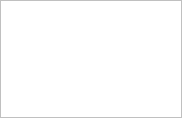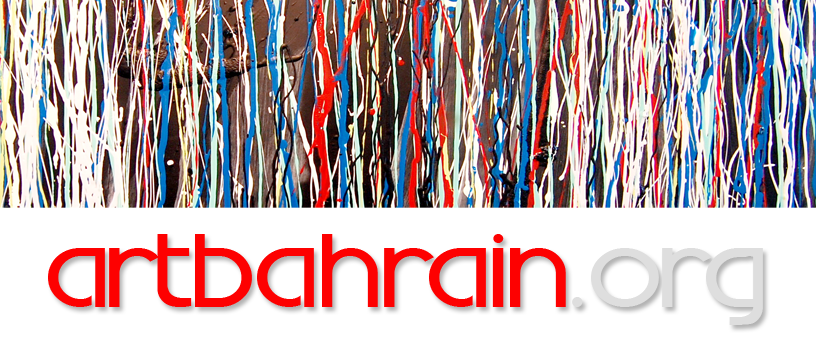

Art Calendar
March
Join artBahrain.org
Advertisement
Copyright © 2010, artBahrain.org. All rights reserved. Use of this site constitutes agreement with our Terms and Conditions.

Selected works from the
38th Annual Fine Arts Exhibition
38th Annual Fine Arts Exhibition
CAMBRIDGE, MA. THE MIT List Visual Arts Center is pleased to present an exhibition of the work of artist Akram Zaatari (b. 1966, Saida, Lebanon). Referring to his artistic practice as 'field work', the artist addresses historical, social, and political conditions of violence and conflict, particularly within the history of postwar Lebanon. The artist's photography and video-based work are an ongoing investigation into "the state of image-making in situations of war," and the desire and memory contained in historical, archival, and personal narratives. Along with engaging the legacy of the Lebanese civil war (1975-1990) and the continued violence and instability in the region, Zaatari's work also focuses on representations of desire and intimacy.
In Tomorrow Everything Will Be Alright (2010), two men separated ten years before express their desire to meet again. This story of separation, desire, and reunion unfolds through a typewriter, as if a script is being written. The film tells a story of intimacy and conflict through temporal gaps in communication and recording technologies. Zaatari's film also revisits the legend of Jules Verne's "green ray," a rarely seen flash of light that can occur shortly after sunset or before sunrise. This fabled green spot, visible above the sun, is thought to be an augur of fortune and love to those who see it.
Nature Morte (2008) is what Zaatari calls a "poetic document that is not a fiction, but not a documentary either." In the film, two men sit in a darkened room, silent save for a call to prayer in the distance. As one methodically assembles an explosive device, the other sews a piece of clothing; their tasks completed, a tense moment of irreversible decision arrives.
Red Chewing Gum (2000) takes the form of a "video-letter" addressing memory and desire. Watching personal footage shot fifteen years earlier, a narrator recalls an incident that took place on Hamra Street, the commercial center of Beirut. In an alley, with the sound of gunshots behind them, two men meet a young street vendor who sits chewing the gum he is supposed to be selling-a single red piece of gum frozen in memory among the white ones.
The exhibition will also include a number of additional screenings of Zaatari's longer-form film essay and documentary works. All is Well on the Border (Al-Shareet bi Khayr) (1997) presents three testimonies reflecting the experiences of prisoners held in detention centers during the Israeli occupation of South Lebanon. Personal narratives, including the letters sent by Nabih Awada, known as "Neruda," to his family while detained for ten years, are interspersed with photographs, documents, and interviews. This Day (Al Yaoum) (2003) examines the mediating role of photography in personal memory, the archive, and contemporary history. Zaatari explores the circulation of exoticized images of the Middle East, from romantic photographs of camels and Bedouins, to television and internet news footage of war-torn Beirut. In In This House (2005) Zaatari focuses on a letter written years ago by a Lebanese resistance fighter, who placed the letter inside the empty case of a B-10 82mm mortar and buried it in the garden behind the house he was occupying in South Lebanon
.
Akram Zaatari: Tomorrow Everything Will Be Alright is organized by Joăo Ribas, Curator, MIT List Visual Arts Center.
About the Artist
Akram Zaatari was born in Saida, Lebanon, in 1966. He received a Bachelor of Architecture from the American University of Beirut and a Master of Arts in Media Studies from the New School (for Public Engagement) in New York. His works have been shown in various solo exhibitions, including at the Museo del Arte Contemporáneo de Castilla y León (León, Spain); Kunsternes Hus (Oslo, Norway); Moderna Galerija Ljubljana (Slovenia) Galerie Sfeir-Semier (Beirut); Kunstverein München, (Munich); the Townhouse Gallery, Cairo; La Caixa, (Barcelona), Portikus, (Frankfurt); and the Photographer's Gallery (London) among others. His work has also been featured in the Istanbul Biennial; the Venice Biennale; the Sharjah Biennial; the Sao Paulo Biennial; the Gwangju Biennial; and the Sydney Biennale.
Zaatari is also the co-founder of the Arab Image Foundation, a Beirut-based nonprofit association founded in 1997 with photographers Fouad Elkoury and Samer Mohdad. The foundation's mission is to collect, preserve, and study the photographc heritage of the Middle East, North Africa, and the Arab diaspora. By collecting, archiving, and analyzing this visual history, the foundation situates the production and circulation of images in the context of a geographically divided Middle East as a register of social and political history.
Funding for Akram Zaatari: Tomorrow Everything Will Be Alright has been provided by The Aga Khan Program for Islamic Architecture, Ghassan and Manal Saab, the Massachusetts Cultural Council, and the Council for the Arts at MIT. Media sponsorship provided by the Phoenix Media Communications Group.
In Tomorrow Everything Will Be Alright (2010), two men separated ten years before express their desire to meet again. This story of separation, desire, and reunion unfolds through a typewriter, as if a script is being written. The film tells a story of intimacy and conflict through temporal gaps in communication and recording technologies. Zaatari's film also revisits the legend of Jules Verne's "green ray," a rarely seen flash of light that can occur shortly after sunset or before sunrise. This fabled green spot, visible above the sun, is thought to be an augur of fortune and love to those who see it.
Nature Morte (2008) is what Zaatari calls a "poetic document that is not a fiction, but not a documentary either." In the film, two men sit in a darkened room, silent save for a call to prayer in the distance. As one methodically assembles an explosive device, the other sews a piece of clothing; their tasks completed, a tense moment of irreversible decision arrives.
Red Chewing Gum (2000) takes the form of a "video-letter" addressing memory and desire. Watching personal footage shot fifteen years earlier, a narrator recalls an incident that took place on Hamra Street, the commercial center of Beirut. In an alley, with the sound of gunshots behind them, two men meet a young street vendor who sits chewing the gum he is supposed to be selling-a single red piece of gum frozen in memory among the white ones.
The exhibition will also include a number of additional screenings of Zaatari's longer-form film essay and documentary works. All is Well on the Border (Al-Shareet bi Khayr) (1997) presents three testimonies reflecting the experiences of prisoners held in detention centers during the Israeli occupation of South Lebanon. Personal narratives, including the letters sent by Nabih Awada, known as "Neruda," to his family while detained for ten years, are interspersed with photographs, documents, and interviews. This Day (Al Yaoum) (2003) examines the mediating role of photography in personal memory, the archive, and contemporary history. Zaatari explores the circulation of exoticized images of the Middle East, from romantic photographs of camels and Bedouins, to television and internet news footage of war-torn Beirut. In In This House (2005) Zaatari focuses on a letter written years ago by a Lebanese resistance fighter, who placed the letter inside the empty case of a B-10 82mm mortar and buried it in the garden behind the house he was occupying in South Lebanon
.
Akram Zaatari: Tomorrow Everything Will Be Alright is organized by Joăo Ribas, Curator, MIT List Visual Arts Center.
About the Artist
Akram Zaatari was born in Saida, Lebanon, in 1966. He received a Bachelor of Architecture from the American University of Beirut and a Master of Arts in Media Studies from the New School (for Public Engagement) in New York. His works have been shown in various solo exhibitions, including at the Museo del Arte Contemporáneo de Castilla y León (León, Spain); Kunsternes Hus (Oslo, Norway); Moderna Galerija Ljubljana (Slovenia) Galerie Sfeir-Semier (Beirut); Kunstverein München, (Munich); the Townhouse Gallery, Cairo; La Caixa, (Barcelona), Portikus, (Frankfurt); and the Photographer's Gallery (London) among others. His work has also been featured in the Istanbul Biennial; the Venice Biennale; the Sharjah Biennial; the Sao Paulo Biennial; the Gwangju Biennial; and the Sydney Biennale.
Zaatari is also the co-founder of the Arab Image Foundation, a Beirut-based nonprofit association founded in 1997 with photographers Fouad Elkoury and Samer Mohdad. The foundation's mission is to collect, preserve, and study the photographc heritage of the Middle East, North Africa, and the Arab diaspora. By collecting, archiving, and analyzing this visual history, the foundation situates the production and circulation of images in the context of a geographically divided Middle East as a register of social and political history.
Funding for Akram Zaatari: Tomorrow Everything Will Be Alright has been provided by The Aga Khan Program for Islamic Architecture, Ghassan and Manal Saab, the Massachusetts Cultural Council, and the Council for the Arts at MIT. Media sponsorship provided by the Phoenix Media Communications Group.

Title
Image description goes here
More information
Tomorrow Everything Will Be Alright
MIT List Visual Arts Center
until 8 April
MIT List Visual Arts Center
until 8 April
Akram Zaatari:






